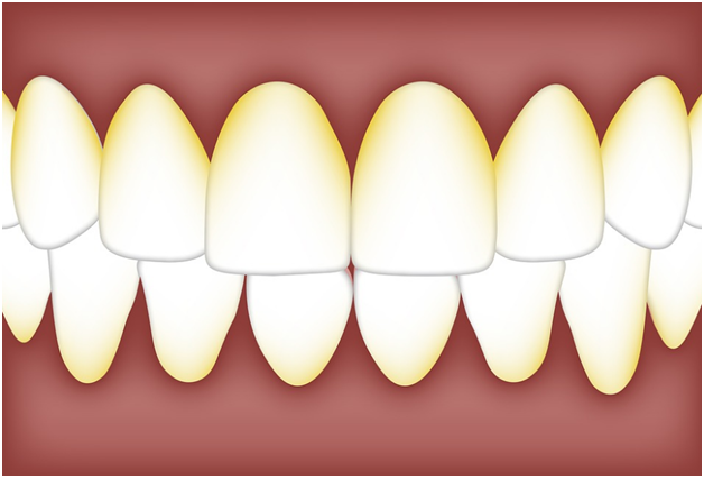
Causes of Dental Plaque and How to Prevent It
Oral health can give you severe pain and a lot of expenses if not taken regular care. Dental plaque, tartar, cavity, tooth decay, bad odor are some of the results of neglecting oral care.
Have you seen a discolored or pale yellow film on your teeth? That is dental plaque. Dental plaque is a soft buildup deposit that accumulates on the teeth. A dental plaque which is also known as microbial plaque is extremely sticky and colorless to pale yellow film, deposits on your teeth caused mainly by starchy eatables(cakes, chocolates) and beverages(sugary drinks).
It starts forming when saliva, food, and fluids combine they produce bacteria deposits, which collect where the teeth and gums meet.
Millions of bacteria live in our mouth feed on the food we eat. It produces acids that attack your tooth enamel and also damage your gums. For this reason, it is critical to treat it today. It becomes permanent, and over the period, it results in inflammation, swollen and bleeding gums. If this is a problem that you face, you can consider dental implants services in windsor.
Causes That Build Dental Plaque
As we eat, the saliva, food, and fluids mixed in your mouth create an environment that allows bacteria to grow that mainly collect on the area where teeth and gums meet.
Does every food nutrients cause plaque? No, Probably. Foods containing carbohydrates say cakes and sugary drinks contribute in plaque formation. If your diet accommodates a large amount of sucrose and starch, you are likely to form dental plaque. However, you can visit the dentist Montrose Colorado for the cure.
Dental plaque begins when the bacteria that are already present in the mouth feed on the food we eat and secrets acids that attacks on our tooth multiplying plaque both above and below the gum line.
The former called supragingival plaque, and the latter called subgingival plaque.
The bacteria stick to a clear sticky substance from saliva, forms glycoprotein which binds immediately to the surface of a cleaned tooth. The combination of bacteria and glycoprotein on the surface of the tooth is called biofilm. At first creation of biofilm leads to plaque formation, after 24 hours it builds up to soft, gooey substance that sticks to the teeth.
Preventive Measures
Dental plaque can be prevented if you start taking proper oral care, make appointments to the dentist for a regular dental checkup. Make sure you are eating food that has lesser content of sucrose and starch.
Lower the Intake of Sugary Drinks and Foods
Remember, the more sugar and starch you are taking, more likely to invite bacteria in your mouth. When bacteria consume food from the leftover particles, they produce acids which cause a cavity. Limit your sugar food and drinks intake. Do not over eat starchy food and sweets in a day.
Brush and Saline Water Rinse Twice Daily
Brushing your teeth two times a day is highly recommended. However, it is preferred by some dentist to brush after every meal. But, brushing before going to bed is a must.
The dentist also recommends saline water rinse to prevent broken teeth and cavity. It is one of the effective remedies that should be added in daily oral care. The longer dental plaque permits to sit on your teeth, the more chances creating acids causing a cavity.
Conclusion
Stick to good daily oral care to prevent plaque formation. Brush your teeth twice using toothpaste that contains fluoride. You can also ask your dentist for toothpaste and mouthwash as per your need.
Make an appointment to the dentist for professional scaling, cleaning and regular dental checkup.
